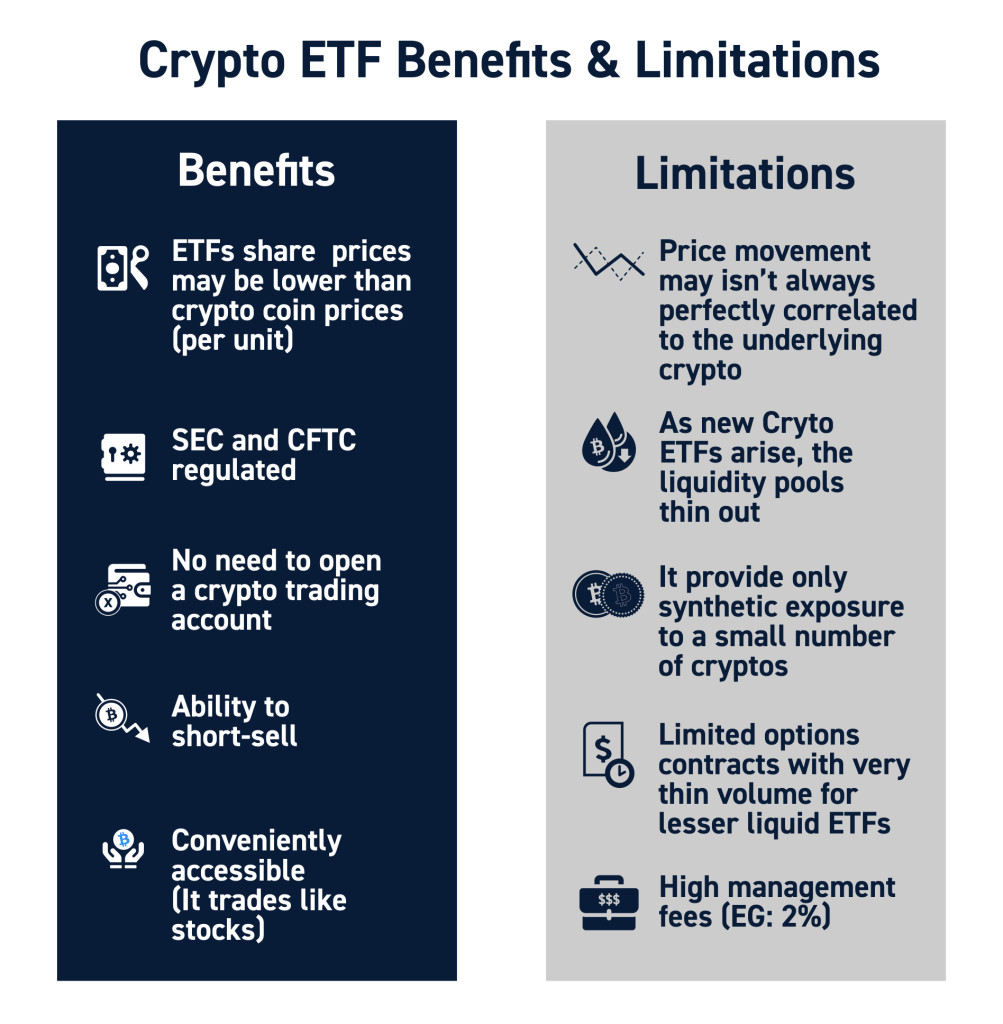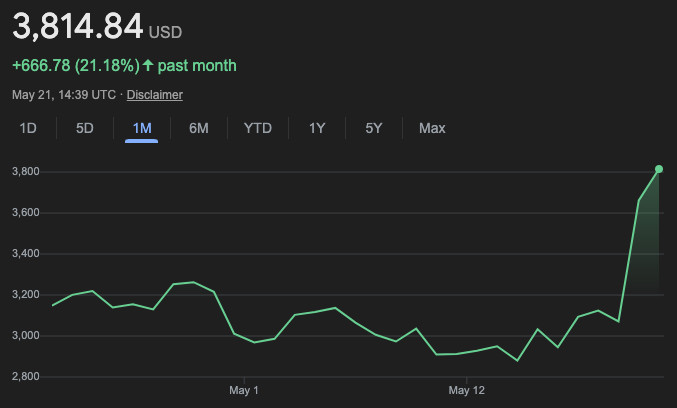Ether ETF Applications Under Scrutiny: How SEC’s Upcoming Decision Could Shape the Future of Cryptocurrency Investments


In Brief
The cryptocurrency community is preparing for the SEC’s deadlines to approve Ether-linked ETFs, with VanEck’s and ARK 21Shares’ applications due on May 23 and 24 respectively.
As the U.S. Securities and Exchange Commission (SEC) approaches crucial deadlines this week to determine whether to approve exchange-traded funds (ETFs) linked to Ether, the native coin of the Ethereum blockchain, the cryptocurrency community is holding its collective breath. VanEck’s application for an Ether spot ETF is due to the SEC on May 23. ARK 21Shares’ application is due on May 24.
While the SEC approved several spot Bitcoin ETFs in January after a years-long battle, many analysts expect a rockier road ahead for Ether ETF approvals. Regulators appear to be taking a more cautious stance when it comes to the world’s second-largest cryptocurrency, hesitating on a decision that could have profound implications for the future of Ethereum and the broader crypto landscape.
What Is an ETF?
To understand the SEC’s reservations, it’s important to first examine what an ETF is and why approval for a commodity like Ether is not a simple matter of rubber-stamping applications. We’ll also explore the unique complexities surrounding Ethereum that are giving regulators pause.
An investment fund that trades on exchanges like individual stocks but owns assets like stocks, bonds, or commodities is called an exchange-traded fund (ETF). Investors may easily obtain diversified exposure to a certain asset class or index by using exchange-traded funds (ETFs).

Photo: Centerpoint
While similar in structure to mutual funds, ETFs offer some distinct advantages. They can be traded throughout the day like stocks, have lower fees thanks to passive management tracking an index, and allow for tax-efficient investing since they generate fewer capital gains. These benefits have fueled a boom in ETF popularity, with over $11 trillion invested globally by the end of 2023.
Photo: American Century Investments
The Regulatory Tightrope for Crypto ETFs
SEC approval of an ETF that tracks a specific cryptocurrency, such as Ether, requires authorities to be persuaded that the underlying digital asset acts more like an item of trade than a security. This distinction is important because securities are governed by considerably tighter regulations and monitoring to safeguard investors.
Historically, the SEC has been reticent to approve crypto ETFs, shooting down nearly a dozen proposals between 2018-2023 over concerns that cryptocurrencies are too volatile, lack robust oversight, and may be ripe for price manipulation and fraud.
However, a shifting legal landscape and increasing regulatory clarity around Bitcoin paved the way for the recent wave of Bitcoin ETF approvals. In August 2023, a federal appeals court ruled that the SEC had acted in an “arbitrary and capricious” manner in denying a Bitcoin ETF conversion request from Grayscale Investments. This legal setback forced the SEC’s hand, leading to the first-ever U.S. spot Bitcoin ETF approvals this year.
The Ethereum Complexities
While Bitcoin ETFs still faced headwinds, Ethereum presents an even more complex web of issues giving regulators pause. Cryptocurrencies like Bitcoin are intended as decentralized digital money and stores of value. Ethereum, on the other hand, has evolved into a broad ecosystem supporting an array of decentralized applications, smart contracts, and even its own currency in Ether.

Photo: Ether price April-May 2024
Key to the SEC’s concerns is whether Ether should be classified as a security or commodity. SEC Chair Gary Gensler has publicly labeled Bitcoin a commodity but has been more circumspect when it comes to Ether’s status. At the heart of the matter is the degree of decentralization within the Ethereum network and the level of influence wielded by its co-founders, developers, and governance processes.
The SEC appears wary that Ether may potentially meet the criteria to be classified as a security since it was initially funded through an initial coin offering (ICO) and owes much of its development to a handful of entities like the Ethereum Foundation. This ambiguity has led to a clash between the SEC, which treats Ether as a potential security subject to strict rules, and the Commodity Futures Trading Commission (CFTC), which states Ether should be regulated as a commodity.
Another complexity arises from Ethereum’s move to a proof-of-stake consensus model in 2023. Ether holders can now “stake” their tokens to help validate transactions on the network and earn rewards akin to earning interest or dividends. Some analysts worry this staking mechanism could strengthen arguments that Ether acts more like a security or investment contract.
Regulatory Hesitancy and Potential Consequences From SEC’s Decision
Many analysts believe that, in order to avoid racing into unknown terrain, the SEC will either postpone or refuse findings on Ether ETF filings due to these complex difficulties. According to Mark Connors of 3iQ Corp, any progress in the realm of digital assets would probably need to go via the legal system as long as Gary Gensler is the chairman of the SEC.
A denial could set up another high-stakes legal battle akin to the Bitcoin ETF saga. JPMorgan analysts speculate the template will be similar – SEC denial, followed by legal challenges that the agency may ultimately lose in court. However, they caution that regulators may be “wary of a slippery slope” where approving Ether ETFs opens the floodgates to a wave of other cryptocurrency products.
According to Decimal Digital Currency’s Roshan Shah, authorities are probably moving slowly since ETF investors are still getting to know crypto, and the situation with ether is far more complicated.
If Ether ETF applications are rejected, at least in the short term, it could dent investor confidence and spark volatility in Ether’s price as money rotates back to Bitcoin and other cryptos with clearer regulatory paths. Currently, the Grayscale Ether Trust trades at a 24% discount to its net asset value, reflecting low expectations of an SEC approval this month.
ETF-related Regulatory Reforms on the Horizon?
While approval seems unlikely this week, many believe it’s only a matter of time before Ether ETFs get a green light, whether through legal action or potential legislative reforms.
The crypto industry is lobbying Congress for clearer rules around digital assets. One proposal could create a new asset class between commodities and securities to encompass cryptos like Ether.
Additionally, with a new election cycle in 2024, a change of the guard atop the SEC could usher in fresh perspectives that are more open to crypto innovation. As Kinga Bosse of MPCH notes, “There’s a sliver of policymakers who really understand crypto. But a lot more have questions about the effects of crypto on the global landscape.”
Ultimately, while regulators may kick the can further down the road, the soaring growth and mainstream integration of cryptocurrencies will likely necessitate compromise and clearer regulatory guideposts. For Ethereum and its native Ether token, this current period of uncertainty may simply be the prelude to wider acceptance and easier access for investors through SEC-approved ETF products.
Disclaimer
In line with the Trust Project guidelines, please note that the information provided on this page is not intended to be and should not be interpreted as legal, tax, investment, financial, or any other form of advice. It is important to only invest what you can afford to lose and to seek independent financial advice if you have any doubts. For further information, we suggest referring to the terms and conditions as well as the help and support pages provided by the issuer or advertiser. MetaversePost is committed to accurate, unbiased reporting, but market conditions are subject to change without notice.
About The Author
Victoria is a writer on a variety of technology topics including Web3.0, AI and cryptocurrencies. Her extensive experience allows her to write insightful articles for the wider audience.
More articles

Victoria is a writer on a variety of technology topics including Web3.0, AI and cryptocurrencies. Her extensive experience allows her to write insightful articles for the wider audience.


















































